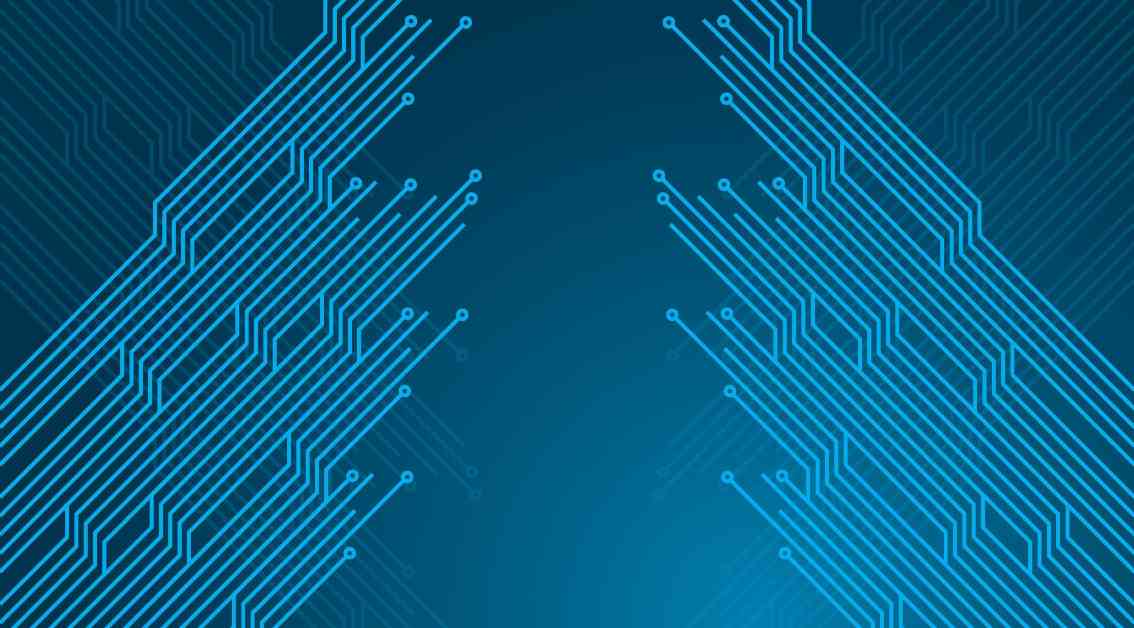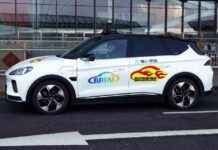AI PC Shipments Surge to 8.8 Million in Q2, Making Up 14% of Total PC Shipments
In the rapidly evolving landscape of technology, artificial intelligence (AI) has been making significant strides, particularly in the realm of personal computing. According to market research firm Canalys, in the second quarter of this year, shipments of AI PCs reached a staggering 8.8 million units, accounting for a substantial 14% of total PC shipments worldwide. This surge in AI PC shipments highlights the increasing demand for smart, intelligent computing solutions that can enhance productivity and efficiency for users across various industries.
Windows PCs, a dominant player in the PC market, experienced a remarkable growth in shipments of AI PCs, with a staggering 127% increase quarter-on-quarter. This exponential growth underscores the growing trend towards integrating AI capabilities into traditional computing devices, enabling users to leverage advanced functionalities and features in their daily tasks. One of the key players in this space, Chinese PC maker Lenovo, made significant strides by introducing AI-powered PCs such as the Yoga Slim 7x and ThinkPad T14s, which contributed to its share of AI-capable PCs among total Windows PC shipments reaching around 6% for the quarter.
The expansion of AI capabilities in PCs is not only driven by advancements in hardware but also by the collaboration between processor vendors and Original Equipment Manufacturers (OEMs) to target a broader customer base. Ishan Dutt, Principal Analyst at Canalys, emphasized this point by stating, “Processor vendors and OEMs are set to target a wider base of customers through new product category availability across more price points.” This strategic approach aims to democratize AI technology by making it more accessible and affordable for consumers, thereby driving further adoption of AI-powered PCs in the market.
The Evolution of AI in Personal Computing
The integration of AI into personal computing devices represents a significant evolution in the way users interact with technology. AI capabilities, such as machine learning, natural language processing, and computer vision, empower PCs to understand user behavior, anticipate their needs, and provide personalized recommendations and assistance. This transformative shift in computing paradigms is reshaping the user experience and enabling a new era of intelligent computing that is more intuitive, efficient, and user-centric.
One of the key areas where AI is revolutionizing personal computing is in productivity and efficiency. AI-powered PCs can automate repetitive tasks, streamline workflows, and enhance multitasking capabilities, allowing users to accomplish more in less time. For example, AI algorithms can prioritize emails, schedule meetings, and provide real-time language translation, making everyday tasks more manageable and seamless for users. This enhanced productivity is particularly beneficial for professionals and businesses seeking to optimize their workflows and maximize their output.
In addition to productivity, AI is also transforming the way users interact with their PCs through intelligent voice assistants and natural language processing. Voice-activated AI assistants, such as Cortana and Alexa, enable users to control their PCs, search for information, and perform tasks through voice commands, eliminating the need for manual input and enhancing user convenience. This hands-free interaction with PCs not only improves accessibility for users with disabilities but also enhances the overall user experience by making computing more intuitive and engaging.
Moreover, AI-powered PCs are revolutionizing content creation and creativity by providing users with advanced tools and features for photo and video editing, graphic design, and music production. AI algorithms can analyze and enhance images, recommend creative effects, and assist in composing music, enabling users to unleash their creativity and express themselves in new and innovative ways. This fusion of AI technology with creative tools is empowering users to push the boundaries of their imagination and create high-quality content that resonates with audiences across various platforms.
The Impact of AI PCs on Industries and Workforce
The rise of AI-powered PCs is not only transforming the way individuals interact with technology but also reshaping industries and workforce dynamics. In sectors such as healthcare, finance, and manufacturing, AI PCs are revolutionizing processes, driving innovation, and enhancing decision-making capabilities. For instance, AI-powered medical imaging systems can analyze medical scans, diagnose diseases, and assist healthcare professionals in providing accurate and timely treatment to patients. This integration of AI technology in healthcare not only improves patient outcomes but also reduces healthcare costs and enhances efficiency in medical practices.
Similarly, in the finance industry, AI-powered PCs are enabling financial institutions to automate trading, analyze market trends, and detect fraudulent activities in real-time. AI algorithms can process vast amounts of financial data, identify patterns, and make predictive insights, enabling financial institutions to make informed decisions and mitigate risks effectively. This data-driven approach to financial management is revolutionizing the way financial services are delivered, making them more efficient, transparent, and secure for customers and businesses alike.
Furthermore, in the manufacturing sector, AI-powered PCs are transforming production processes, optimizing supply chains, and improving quality control measures. AI algorithms can predict equipment failures, optimize production schedules, and enhance product design, enabling manufacturers to reduce downtime, minimize defects, and enhance overall operational efficiency. This integration of AI technology in manufacturing is driving the Industry 4.0 revolution, where smart factories leverage AI-powered PCs to automate processes, improve productivity, and adapt to changing market demands swiftly.
The impact of AI-powered PCs on industries extends beyond operational efficiencies to workforce dynamics, as the adoption of AI technology necessitates new skill sets and competencies among employees. As AI becomes more prevalent in the workplace, employees need to acquire digital literacy, data analytics, and problem-solving skills to effectively leverage AI-powered PCs and collaborate with intelligent systems. This upskilling of the workforce is essential for organizations to remain competitive, adapt to technological changes, and drive innovation in a rapidly evolving digital landscape.
The Future of AI in Personal Computing
Looking ahead, the future of AI in personal computing holds immense potential for innovation, disruption, and transformation across various sectors and industries. As AI technology continues to advance, AI-powered PCs will become more intelligent, autonomous, and context-aware, enabling users to interact with their devices in more natural and intuitive ways. The integration of AI into personal computing will blur the lines between human and machine interaction, creating a seamless and personalized user experience that anticipates user needs and adapts to their preferences dynamically.
One of the key trends shaping the future of AI in personal computing is the convergence of AI with other emerging technologies such as 5G, edge computing, and Internet of Things (IoT). The synergy between these technologies will enable AI-powered PCs to leverage real-time data, low-latency connectivity, and intelligent edge processing to deliver immersive experiences, personalized services, and seamless connectivity across devices. This interconnected ecosystem of intelligent devices will revolutionize the way users interact with technology, enabling them to access information, communicate, and collaborate in ways that were previously unimaginable.
Moreover, the proliferation of AI-powered PCs will lead to the democratization of AI technology, making it more accessible and affordable for consumers across different demographics and geographies. As AI capabilities become ubiquitous in personal computing devices, users will benefit from enhanced productivity, creativity, and connectivity, driving further adoption of AI-powered PCs in homes, schools, businesses, and public spaces. This democratization of AI technology will empower users to harness the full potential of intelligent computing and unlock new opportunities for learning, innovation, and collaboration in a digital-first world.
In conclusion, the surge in AI PC shipments to 8.8 million units in the second quarter, making up 14% of total PC shipments, signifies a significant milestone in the evolution of personal computing. The integration of AI capabilities into PCs is transforming the way users interact with technology, enhancing productivity, creativity, and connectivity in unprecedented ways. As AI technology continues to advance, the future of AI in personal computing holds immense potential for innovation, disruption, and transformation across industries and workforce dynamics. By embracing AI-powered PCs, users can unlock new possibilities, drive digital transformation, and shape a future where intelligent computing is at the heart of everyday experiences.

















